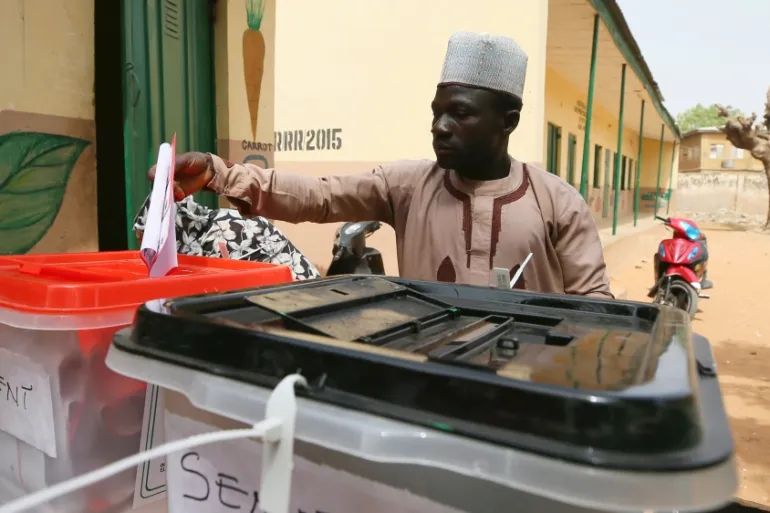It is hardly surprising that distressing assaults on the offices of Nigeria’s Independent National Electoral Commission (INEC) are causing increased anxieties about the safety of the the forthcoming election in Nigeria.
Back in December, assailants in Niger’s south-eastern Imo State set fire to an INEC office. While this is hardly a new occurrence given that nearly 50 of the commission’s offices have already been destroyed since Nigeria’s last election in 2009 according to The Associated Press. Yet such security threats are expected to stand in the way of peaceful elections due to be held in Nigeria in late February. Bulama Bukarti, a senior fellow with the Tony Blair Institute for Global Change, declared that this election will be the most challenging when it comes to security in the country’s recent history.
In the southeast, where most of the attacks on election infrastructure have happened, violent separatists are trying to establish an independent state of Biafra, more than 50 years after their rebellion failed. Authorities have accused the main pro-Biafra group, the Indigenous People of Biafra commonly known as IPOB, of murdering security personnel and sometimes even their own people from the Igbo ethnic group. The fact that southeast Nigeria is a hotspot for violence, means that the region is likely to be a security flashpoint ahead of and during the elections due to the high potential for IPOB members to disrupt the electoral process and assert IPOB’s dominance in the region. Whilst security deployments are expected to be high in Nigeria’s southeast, in the run-up to the election, IPOB’s mere threat of violence could be enough to sway voters away from the polls due to the fear of violent outbreaks.
Whilst no one has claimed responsibility for the latest attacks on INEC offices yet, it is probable that more such attacks may occur in the run-up to the election given the high stakes. The Islamic extremist insurgents, Boko Haram and its branch, Islamic State West Africa Province (ISWAP), are also a potential threat to the elections. Whilst Nigeria’s security forces have asserted that they have the security situation under control, I for one am unconvinced. Just look at what happened in 2011, when over 800 people died in post-election violence. Electoral violence, including protests against official results, is not uncommon in Nigeria and with tensions high over the increased cost of living, this election is unlikely to be a quiet one.
At the end of the day, Nigeria is not only Africa’s largest democracy, but it is also Africa’s largest economy and most populous nation, so the election will be closely watched by other African countries and worldwide. A successful election, with minimal to no electoral violence is important for Nigeria and could send a strong message to fellow African states where democracy has been lacking over the years. But considering the high levels of political instability in Nigeria and throughout Africa over recent months, (let us not forget that there were multiple coups in Africa last year, some of them more successful than overs), I for one will remain doubtful.
Considering that these elections will be widely watched, militant groups operating in Nigeria such as IPOB and ISWAP will be looking to gain as much media attention and are likely to perceive the elections as a golden opportunity to launch attacks in the hopes of getting their messages across. Ultimately, an election fraught with violence and malpractice will have severe socioeconomic implications both for Nigeria itself and abroad. Nigeria’s policymakers and their international partners must do everything possible to understand the militant threat and to mitigate them to ensure a peaceful transition of power.
Image Credit: Afolabi Sotunde/Reuters





